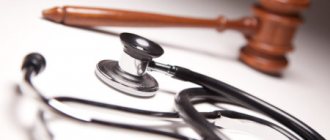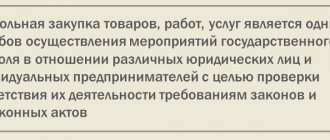Common sense dictates that when any health problem arises, the right decision is not to self-medicate, but to seek help from medical professionals and professional clinics. When we turn to specialists, we trust them with what is most precious – the life and health of loved ones, children and our own. What to do when something irreparable happens, and the reason for this is not an objective factor, but a neglectful attitude towards professional duties, namely, ordinary medical negligence?
An error by doctors or their carelessness can lead to the death of a person, and therefore legal liability, including criminal punishment, awaits medical negligence.
What is included in the concept of negligence?
Negligence of doctors
Many of us have heard stories from people about the tragic results of turning to “specialists” from healthcare. And cases of doctors who made a mistake appear in news reports every now and then. Most often, it is not even errors in recognizing some unusually complex diseases that lead to disastrous consequences, but ordinary negligence in relation to patients, inattention to detail, or even ordinary fatigue of a health worker.
The main reason for medical negligence is the human factor: fatigue, negligence, inattention or disregard.
It is not for nothing that people literally “over each other” convey the opinion that some doctors can be trusted with their health, while others are very undesirable. It is in medical practice that word of mouth has the greatest influence. This is explained by the fact that a person not only wants to find a good doctor with positive reviews, but also to make sure that there is no risk of medical error. The opinion of patients concerns not only the set of professional knowledge, but also, no less important, the doctor’s attitude towards his duties.
Reasons
Before running to court, you need to clearly establish what happened. The sources of your problem could be deficiencies in treatment (the doctor is to blame), an accident (no one is to blame) or the natural progression of the disease (nature or your body is to blame).
Only in the first case will going to court be a legal action. Accordingly, more “narrow” causes of action may include:
- Refund claim template
- What to do if your claim is not accepted
- What to do if the organization has not responded to the complaint
- Private complaint of the CAS RF: sample 2021
- Claim form for service agreement
- Deadline for filing a claim under a service agreement
- Deadline for responding to a pre-trial claim under the Arbitration Procedure Code of the Russian Federation
- Incorrectly diagnosed disease – lack of experience or professionalism on the part of the doctor;
- Incorrectly prescribed medications, therapy or other forms of treatment is a medical error;
- Unlawful refusal to provide medical care - if you were not accepted without documents, registration, insurance, etc. Moreover, according to the law, if the condition was serious or threatening to further full life, you were required to be admitted without documents;
- Error in the composition of the drug - the drug was not suitable due to your allergies, which the doctor did not take into account, etc.;
- During emergency care - non-compliance with procedures, duration or quality of care provided (usually true for emergency workers).
How to identify a negligent doctor?
Such a capacious concept as negligence includes a lot of both professional and universal qualities of an employee in any field:
- Doctor's irresponsibility;
- Caring attitude;
- Caring for too many patients increases the risk of errors due to inattention and fatigue;
- Quick examination without bringing up old medical records.
In medicine, as elsewhere, this means a combination of incompetence, laziness, and neglect of one's work. But in some places this may not have such negative consequences. For example, laziness and dishonesty of an accountant can result in financial losses, and the negligence of a gardener can result in the death or disease of a plant.
If we are talking about human health and life, then the consequences carry a much larger social aspect. Damage is caused to the physical or mental state of a person, and sometimes leads to his death. Therefore, pay attention to how:
- A patient is being admitted;
- How many examinations and analyzes are carried out before the circumstances are determined;
- Doctor's appearance. Especially if he looks tired, very bruised, or, much worse, drunk.
- Reviews from patients about his work;
- Reviews about the clinic in general.
Negligence can be expressed both in certain, obviously unprofessional, actions, and in the inaction of a doctor, leading to a deterioration in the patient’s condition or his death. Inaction is understood as ignoring the requirements of medical discipline, either purposefully or as a result of laziness or frivolity.
Unprofessional actions must be understood as medical, obstetric, or nursing care for a patient that occurs in violation of prescribed standards, or manipulations that are incomplete, untimely, or half-hearted.
Your actions
Before filing an application in court, you need to be patient and also try to resolve the issue directly with the medical institution. The entire path from identifying a problem to filing a claim may look like this:
- Search for evidence . Any claim, complaint or lawsuit must be accompanied by evidence of medical error, negligence or fault of the medical institution. Therefore, it will be necessary to copy outpatient cards, medical history, doctors’ statements and reports, MSEC certificates, witness statements, testimony of independent experts, etc. Some of them cannot be obtained without a legal request, while others must be provided to you upon request. Already at this stage, it would be a good idea to enlist the support of a lawyer - he will be able not only to officially obtain the necessary documents, but also to send your case for an independent examination to other doctors, for example, from another region, who will confirm or refute your doctor’s prescriptions;
- If you or your loved ones were treated using insurance, contact the organization that issued you the policy . Your request may initiate a pre-trial investigation of the doctor who treated you and help determine whether his care was of high quality and professional;
- With copies of the collected documents, you will need to file a complaint with the health authorities and the head of the medical institution . Similar requests can be submitted simultaneously, but the complaint must indicate that you have sent it to a higher/lower authority. At this stage, you can demand to convene a commission of doctors who will have to find violations in the doctor’s actions. It should be remembered that doctors, as a rule, protect “their own”, so, most likely, you will receive a veiled message that no actions harmful to you were found in the doctor’s work;
- File a claim and send a warning to the medical institution to take the case to court;
- File a claim in person with the courts or send it by registered mail.
If you want to bypass the stage of pre-trial proceedings, it is necessary to reconsider such a decision, since the court will more willingly begin to understand a situation where the plaintiff has already completed all legal pre-trial procedures and received refusals or “printed deception” in the conclusion of the commission of doctors. You may even be sent from court to lower authorities to resolve the dispute peacefully, so always try to first negotiate with doctors, write complaints to the Ministry of Health or any higher authority.
And only then contact lawyers. This way, you will provide yourself with a chance to resolve the problem without going to court, as well as a faster trial if the commission or appeal body was not too loyal to you.
You must file a claim within two years from the date the problem occurred with the doctor, the date you discovered the harmful effects of the treatment, etc. The trial itself can last from one month to six months - this will depend on the conduct of forensic medical examinations, the literacy of the requirements, the work of the lawyer and the “savvy” of the defense.
Is medical negligence provable?
Negligence of doctors
For the patient or his relatives, the negligence of the doctor is paid at the highest price - health and life. What about the healthcare worker himself? What is the price of his responsibility and how is it expressed?
The Criminal Code of the Russian Federation does not have a separate article that deals with liability for medical negligence.
It is possible to hold a health worker accountable under the law for a criminal attitude towards the patient’s health, indifference and inattention only by considering his actions (or inaction) in terms of neglect of the provisions and norms regulating his activities (Parts 2 and 3 of Article 293 of the Criminal Code of the Russian Federation).
But first, it is necessary to establish a connection between the crime event and the person who committed it (the health worker).
- The objective side of the crime is characterized by the careless and frivolous attitude of the doctor towards the patient, if he foresees and can avoid serious consequences.
- Subjectively, there may be such a thing as careless guilt. It is expressed in the fact that the perpetrator does not foresee the tragic results of his inaction or foresees, but does not have the opportunity to prevent them. If it is proven that the health worker really could not have avoided or predicted the deterioration of the victim’s health, then he will not face criminal prosecution.
Any doubts about whether the medical worker knew about the consequences of his actions and could have foreseen and prevented them are interpreted in court in favor of the accused.
Thus, if the mistake was made unintentionally, due to the influence of external factors (for example, old clinic equipment) and the doctor’s high fatigue due to the large number of patients or operations performed, then the court may acquit him.
Liability and consequences of medical negligence
What is the criminal liability of a doctor? If it was nevertheless proven, then the specialist will face the following penalties, dictated by Article 239:
- A fine of up to 120 thousand rubles, arrest for up to 3 months and compulsory or corrective labor for up to 1 year - if the damage was minor.
- Forced labor for up to 5 years, a ban on further medical practice for up to 3 years, or imprisonment for up to 7 years - if the consequence of the specialist’s negligence was the death of the patient or serious harm was caused to him.
Read what to do if your child is beaten at school.
And here’s where to complain if a husband beats his wife.
Signs of guilt
Physician negligence is expressed in the following:
- The doctor should have, but did not, perform the actions prescribed by the rules for providing care to the patient. That is, he made decisions that contradicted his job descriptions. Some lawyers call this inaction.
- The incompetent actions of the medical staff led to an incorrect diagnosis. For a correct diagnosis, the characteristics that should have served as reference for the doctor in making a decision were not taken into account.
- The patient's condition worsened as a result of criminal inaction: laziness, carelessness, ignoring the criticality of the patient's condition.
- The doctor prescribed a treatment that missed key healing moments and chose a “primitive” path. For example, he prescribed drugs that obviously did not bring results, but were cheap, to patients who were unable to “thank” him.
If this took place, then there is a strong and obvious cause and effect relationship, which serves as proof of the criminal negligence of doctors. All that remains is to collect documentary evidence and witness testimony to win your case in court.
More in-depth advice on all issues related to medical negligence can be obtained on our website. 24 hours a day and free of charge.
Algorithm of patient actions in case of a medical error
To prove the wrongful actions of a doctor, the following sequence must be observed:
- Collect all evidence. If the hospital does not issue any medical document, it can be obtained at the request of the court after filing a statement of claim. To do this, you will need to apply for this document.
- If the medical services provided are included in the list of insurance services, the insurance company must evaluate the treatment provided free of charge and issue an appropriate conclusion. To do this, you need to contact the company that issued the insurance policy with an application to conduct such an inspection.
- It would not hurt to get advice from a highly qualified specialist in this field of medicine.
- Write an appeal to the health authorities with a request to review the doctor’s actions by a special commission. The commission's conclusion will also be evidence for the court.
- Demand that the head of the medical institution where the harm was caused compensate it out of court.
- If pre-trial attempts to resolve the problem are unsuccessful, you need to draw up a statement of claim and submit it to the court.
Such an algorithm of actions, of course, requires a considerable investment of time and effort. However, without collecting all possible documents and expert opinions, the court will not consider the case or will make a decision in favor of the defendant.
Presence of a crime
For all of the above characteristics, the corpus delicti is obvious if there is:
- Objective signs (laziness, inattention to the patient, incorrect assessment of the severity of his condition, leading to negative consequences). This cause and effect relationship is obvious.
- Subjective signs (presence of a specific culprit from among the medical staff).
- Signs of damage (facts of death or deterioration of the patient’s condition as a result of medical manipulations).
Features of the crime
The main nuance of this type of crime is the complexity of evidence and the reluctance of courts to consider cases of medical errors. Therefore, before filing a claim, it is necessary to clearly determine the reason for the deterioration of the plaintiff’s condition:
- Natural progression of the disease.
- Accident during treatment.
- Incorrect actions of doctors during diagnosis and treatment.
The court will consider the application only if it is based on a third reason. But it is not enough to declare it; you need to provide evidence reflecting the cause-and-effect relationship between the doctor’s actions and the consequences in the form of a deterioration in the patient’s condition.
Such evidence will be:
- Medical documents.
- Expert opinions.
- Testimony of witnesses and specialists.
The more such documents there are, the higher the likelihood of a successful resolution of the court case.
Signs of qualification
Negligence of doctors
Qualifying signs, the presence of which is the basis for toughening the punishment, are prescribed in Art. 293 of the Criminal Code of the Russian Federation. These include:
- A situation where serious harm to health or death is caused as a result of inappropriate behavior of medical personnel.
- Article 293 of the Criminal Code of the Russian Federation speaks of causing death or damage to health not to one, but to two or more persons, as a sign of special qualification. The death of a child is not particularly qualifying.
Please note that the death of a pregnant woman or minor child is not considered a qualifying factor.
Have a question for a lawyer? Ask now, call and get a free consultation from leading lawyers in your city. We will answer your questions quickly and try to help with your specific case.
Telephone in Moscow and the Moscow region: +7
Phone in St. Petersburg and Leningrad region: +7
Free hotline throughout Russia: 8 (800) 301-39-20
When investigating medical malpractice cases, it does not matter who was harmed by the actions. Death or serious consequences for a child, an elderly person or a disabled person are assessed and punished according to the same objective criteria.
How to prove a doctor's guilt in the death of a patient due to his negligence
First of all, it is necessary to appeal to the patient’s medical card and his medical history. After all, the negligent attitude of doctors can consist not only in an erroneous choice of treatment method, but also in an incorrect diagnosis.
In addition, medical negligence leading to the death of a patient is reliably established through forensic medical examinations. In some cases, it is necessary to carry out several of them in order to fully clarify the truth.
In some cases, exhumation of the body is required so that experts can conduct their research. This entire process must be carried out in full compliance with the norms of the Criminal Procedure Law.
If an accident occurs due to medical negligence, seek legal advice from an attorney. He will be able to set priorities and suggest the right course of further action.
If the careless attitude of doctors led to the death of the patient, Article 293 of the Criminal Code will be the main one for the investigative authorities. At the same time, it is possible that the actions of doctors can be qualified under other provisions of the criminal law.
For example, when the carelessness of doctors led a patient to a coma, then charges can be brought under other articles.
Difficulty in investigating cases of medical negligence
Investigating medical negligence cases is always very difficult. In each case, they carry a lot of individual traits. Sometimes such cases are initiated against experienced doctors who have extensive experience, a lot of positive reviews and a long history of successfully performed operations. Often the reason for this is only the deterioration of the doctor’s well-being, his fatigue, in which case he will be justified. But if medical negligence occurred due to his arrogance, then it will be more difficult to escape criminal punishment.
But in all cases the difficulty is to prove:
- Presence of direct intent;
- Obviously predictable unprofessional behavior when making a diagnosis and prescribing treatment.
It can also be difficult to prove criminal negligence in the actions of nurses and midwives. As a rule, they all claim that they “did everything possible” for the patient. And only an in-depth examination can sometimes prove, for example, that the dose of a medicinal product has been exceeded, that the patient has not been identified as having allergic reactions to the components of the drug, etc.
How to punish a doctor for negligence - action plan
The fight for justice should begin with the chief physician of the institution where the perpetrator of the incident works. Even if you see that the hospital management does not protect the rights of patients, write a complaint against the attending physician to his boss. An unanswered statement will be an additional argument in your favor at trial.
If we are talking about causing serious harm to a patient, it is necessary to submit a statement of medical negligence to the investigative committee. They should initiate a criminal case under the above article. If law enforcement agencies are in no hurry to begin an investigation, you need to file an application with the prosecutor's office. At the same time, you can prepare a lawsuit.
What medical errors have to be proven most often?
As a rule, interested parties turn to experts to prove errors:
- In the management of pregnancy and childbirth.
- Therapeutic services.
- Dental care.
- Consequences of vaccination.
- Consequences after surgery.
- Determination of disability.
The accusation of medical negligence requires specifics. During the investigation, it is necessary to establish which instructions were violated, what action led to the consequences, and whether the doctor, within the framework of his duties, could have avoided negative consequences for the health and life of the patient. This is what the examination helps establish.
The responsibilities of a health worker are not unlimited. Their range is prescribed in legal acts, job descriptions, orders and regulatory documents.
Claims against a doctor that go beyond the scope of his powers, as well as the absence of such a legal act drawn up in the proper manner, exempt the medical worker from liability for negligence.
Bringing a doctor to criminal liability for negligence
To do this, you write a statement to the police or prosecutor's office, who will have to conduct an investigation and take appropriate response measures.
- To do this, you also need to document the harm caused,
- therefore, you need to contact another doctor who will make a new diagnosis, or conduct an independent medical examination.
- The expert's conclusion will be your main evidence.
- During the investigation, a forensic examination may also be ordered.
- Subsequently, at trial, the prosecutor will act in your interests and prosecute you.
How to understand: medical error or negligence?
Negligence of doctors
You always need to see the fundamental difference between the criminal negligence of a doctor and his professional error.
In the first case, a specialist can foresee the consequences that certain actions or inaction on his part may lead to. That is, a medical worker obviously knows what to do in order to prevent negative consequences, can predict exactly how the situation will develop, but deliberately commits violations, which leads to negative consequences.
This means that his act, from a legal point of view, cannot be regarded as accidental causing death or serious bodily harm. Even if his belated health measures had a good purpose to correct the situation.
If a doctor foresaw the deadly consequences of his actions, then he will not be able to prove that it was an error and not criminal medical negligence.
In the second case, the doctor does everything possible to help the patient, believing his actions to be correct and useful. This act falls under the definition of causing damage to the life or health of a patient through negligence.
When is a trial required?
Bringing a case to court requires good legal preparation, as well as collecting a large package of documents for evidence. It is necessary to prove that the doctor’s actions were precisely negligence on his part, and not other factors. Legal proceedings are required in the following cases:
- with an incorrect diagnosis and incorrectly chosen treatment tactics;
- causing harm to the patient's health;
- untimely discharge;
- treatment led to disability;
- pharmacist error;
- death.
When is a doctor not liable for a medical error?
He will not be held liable if:
- Low qualifications did not allow the medical worker to provide the necessary assistance.
- The specialist was not able to carry out medical procedures due to interference from third parties.
- Medical services were provided under the influence of extreme external factors (war, terrorist attacks, natural disasters).
Often, the personal qualities of a doctor, showing his positive sides, can influence the court’s decision.
How to sue a doctor?
Russian courts are generally reluctant to consider such cases. Therefore, before filing a claim, you need to determine for yourself what the reason for the unfavorable outcome is: - the natural course of a serious illness; - accident in medicine; - disadvantages of the diagnostic and treatment process. Only the 3rd reason can be the basis for satisfying the claims.
When filing a claim, it is advisable to prepare evidence confirming the cause-and-effect relationship between defects in medical care and the resulting consequences. Any medical documents, expert opinions, testimony of witnesses and specialists are used as evidence.
The more of them are collected in the trial, the higher the likelihood of winning the case. Algorithm for citizens going to court in connection with personal injury:
1. Collect and copy all medical documents available to you regarding the case: extracts, outpatient records, medical histories, opinions and consultations of various specialists, MSEC certificates. If it is impossible to obtain any document from the hospital, it can be requested through the court at your request after filing a statement of claim.
2. If the medical specialty for which you were treated is included in the compulsory health insurance program, you must contact the medical insurance company that issued you the compulsory medical insurance policy.
Expert opinion
Mikhailov Igor Konstantinovich
Legal consultant with 10 years of experience. Specializes in the field of civil law. Has experience in document examination.
Upon your application, the insurance company will conduct a free pre-trial examination of the quality of medical care and issue you a reasoned opinion on the quality of treatment.
3. You can consult a highly qualified specialist in this field of medicine, whose opinion can support your position.
Becoming a victim of a medical error in modern times is not just scary - unfortunately, similar precedents happen almost everywhere. The quality of medical services provided is falling, as is the motivation of doctors to do their work.
Many attribute this to low salaries of employees and the general dynamics of morbidity in the country, which is why the courts are extremely reluctant to accept such appeals from citizens. The reason for this “bias” of the courts is also the difficulty in determining the culprit - after all, it is sometimes impossible to distinguish the negligence of a doctor from the natural course of the disease.
Tragic cases can occur due to poor-quality equipment in hospitals, incorrect diagnoses are explained by insufficiently clear diagnostics, and the rapid development of the disease is due to the characteristics of the patient. Not to mention that often prescribed medications can have the exact opposite effect in certain people.
- Reasons
- Your actions
- Statement of claim
Where to complain about medical negligence?
If a conflict situation arises, you must first contact the head physician of the institution where the patient was provided with inappropriate care. In addition, you must write a statement to one of the bodies for the protection of the legal rights of citizens:
- To one of the structural departments of the Ministry of Health.
- To the insurance company where the patient is insured.
- Roszdravnadzor body (territorial division).
- To the prosecutor's office.
In order for the case to be carried out successfully, we advise you to hire a professional lawyer who will handle it from beginning to end.
Physician's financial liability
The doctor’s actions are also qualified by the law “On the Protection of Consumer Rights”, since when contacting a medical institution, the patient becomes the customer, and the doctor becomes the performer. According to Article 14 of the Law “OZPP”, the doctor bears property liability for harm caused to the patient.
For example, a dentist in a private clinic diagnosed a patient with mild caries and cured it, but in fact it was pulpitis - inflammation of the internal tissues of the tooth. The development of the disease led to the destruction of the tooth and it had to be removed.
The dentist who diagnosed caries must pay for the removal of the tooth and installation of an implant for the patient.
In addition, the patient has the right to compensation for moral damage. The amount of compensation is determined by the court. Practice shows that the amount of compensation rarely exceeds 50% of the total cost of the claim.
The victim also has the right to receive a fine from the medical institution where he received poor-quality care. The fine is up to 50% of the cost of services.
Rules for writing an application
Traditionally, the body to which the document is sent is indicated in the upper right corner:
- Name and address of the institution where the application is sent;
- Full name, address and telephone number of the applicant.
A detailed description of the case of medical negligence, which includes:
- Patient's name;
- Full name of the doctor who prescribed treatment measures;
- The time period during which the treatment took place;
- Procedures and drugs used for treatment, manipulations by a healthcare worker;
- Cases of communication with a doctor and his explanation of the patient’s condition, his diagnosis and treatment methods;
- The reaction of the head physician to complaints, if there were any appeals to him;
The following are the requests and demands of the applicant:
- Please find out what exactly led to the deterioration of the patient’s condition or his death.
- A request to hold the doctor accountable if the inspection reveals signs of neglect of duty.
- Requirements for compensation by a medical worker for harm - physical, moral and material (if his guilt is proven).
At the end of the statement:
- List of attached documents.
- The phrase that the applicant has been notified of liability for knowingly false denunciation.
- Date, signature of the applicant (plaintiff).
The document is accompanied by copies of all possible documents relevant to this application and capable of shedding light on the situation. A list of them should be included in the application.
The statement is written in as many copies as there are parties involved in the conflict: for the court, the plaintiff and the accused. Don't forget to make copies of the application.
An investigation into a claim of medical negligence is carried out as usual. If there is an application to the court, then it is possible for the parties to enter into a settlement agreement in pre-trial proceedings.
The application is considered no more than 30 days, the applicant is notified in writing of the results.
Where to contact
First, you should contact a third-party specialist who will document that the damage to your health was the result of the doctor’s negligence.
Not all citizens are knowledgeable in the intricacies of medical care and cannot draw a connection between the improper work of a doctor and the deterioration of their own health, so another doctor from another institution will perfectly help this situation. It is better not to address this question to employees of the same organization where you received treatment.
Once the fact of negligence has been established, a whole road of various authorities opens before you to which you can complain.
Chief physician
Of course, we need to start with the hospital management.
Contact the head physician with a complaint and provide evidence. You can demand either repeated, high-quality treatment, or compensation for damage to health that was caused.
In this case, everything depends on the head physician; he can either satisfy your request, refuse it or simply ignore it.
Ministry of Health and Prosecutor's Office
If you were refused by the hospital , the next step would be to contact the Ministry of Health. This is the highest level in the medical hierarchy, and you can safely go there, indicating in your application not only the fact of poor medical care, but also the indifference of management.
If the ministry employees did not hear you, which, unfortunately, happens, contact the prosecutor's office. She directly controls the work of all government agencies, and it is she who will deal with legal proceedings related to them. He will order an examination in the future (we will talk about it a little later) and open a criminal case.
Insurance and police
You can also contact an insurance company, even if you only have compulsory insurance. Unfortunately, according to statistics, not all insurers undertake to resolve such issues, although this is part of their obligations to policyholders. You should carefully study the various reviews of people who contacted your insurance company in a similar matter and how it turned out.
It is worth clarifying about the police, who do not deal with complaints of medical negligence. You should contact the police only if you are sure that the doctor caused harm to your health intentionally, and not because of laziness, illiteracy or indifference.
Court
So, if all of the above authorities turned a deaf ear to your complaints, all you have to do is sue the doctor for negligence. We didn’t talk about it earlier only because the court is a last resort, and it will only consider your complaint if you have already contacted the hospital management and the prosecutor’s office, but were not satisfied with the result.
Consequences for the medical professional
Liability under Article 293 of the Criminal Code of the Russian Federation begins when the perpetrator of negligence reaches the age of 16, subject to his full sanity.
For a medical worker who has committed negligence, measures may be taken that do not only and not always involve criminal prosecution. Through the head physician, he may be reprimanded, reprimanded, etc. As a last resort, dismissal. In financial terms, he may be punished in the form of deprivation of the bonus.
Moreover, the entire medical institution may be subject to similar disciplinary measures from, for example, the insurance company with which it has an agreement. They imply fines, and in the form of extreme guilt - liability under Article 293 of the Criminal Code of the Russian Federation.
The very negligence of a doctor according to the law (under Article 293 of the Criminal Code of the Russian Federation) is punishable by imprisonment for up to 5 years with a ban on engaging in professional activities for up to 3 years. Of course, the specific punishment is determined by the court, based on the complex of evidence collected.
Please note that Russian legislation is constantly changing and the information written by doctors may become outdated. In order to resolve the issue you have regarding Criminal Law, we advise you to seek the advice of a lawyer in support of the site. To do this, use the form below or contact the specialist directly on the right side of the screen.
What consequences of irresponsibility are sufficient to initiate a case?
The legislation outlines clear consequences after which it is necessary to initiate a case under Article 293 of the Criminal Code of the Russian Federation:
- Major and especially major damage - from 1 million rubles to 7.5 million rubles.
- Violation of the rights and interests of a patient or organization protected by law and the state - based on the Constitution of the Russian Federation.
- Particularly serious damage to health, death.
- Fatal outcome of two or more persons.
Diagnosis in a million
The Supreme Court clarified that it is the medical institution that must prove in such processes the correctness of its actions, the absence of its guilt, and twice, both in causing harm to health and in causing moral harm during the provision of medical care.
The essence of the dispute is as follows. An elderly woman, disabled group I, filed a lawsuit and demanded more than a million rubles from the hospital. It was this amount that the plaintiff estimated her moral suffering due to the fact that the doctors could not give her the correct diagnosis.
A pensioner was admitted to the hospital complaining of pain in her leg. The woman was hospitalized, but doctors did not find the cause of the pain and quickly discharged the pensioner home.
In court, the former patient said that she was not even examined by doctors - a surgeon and a traumatologist. She was also not prescribed an X-ray. A few months later, in another hospital, an x-ray showed a non-united femoral neck fracture.
The pensioner stated that poor-quality medical services caused her moral and physical suffering. Her blood pressure rose and depression began. It is clear that the hospital did not agree with such accusations and asked the court to order a forensic examination.
Judging by her findings, the patient's examination was consistent with her diagnosis. Well, the fact that the doctors “didn’t notice” the fracture of the femoral neck is due to “the objective complexity of the diagnosis, since the true history of the disease was revealed after her discharge.”
The medical examination indicated in its conclusion that during the examination by a neurologist, the patient was scheduled to have consultations with a surgeon, but they were not carried out. According to the examination, there were no serious consequences from this “defect in medical care.” And, according to the expert, “there is no reason to believe that the doctors’ actions themselves caused harm to the patient’s health.”
In court, the former patient said that she was not even examined by doctors - a surgeon and a traumatologist. She was also not prescribed an X-ray and was quickly discharged home
The district court, guided by this conclusion, completely rejected the pensioner’s claim. In its decision, the court wrote: the patient herself had to prove the fact that she was provided with inadequate medical care. For example, that after she was diagnosed with a hip fracture, she experienced complications, or that her health condition worsened as a result of the actions of the defendant, or that the amount of medical care provided to her resulted in negative consequences for her health or created such a threat.
In general, the pensioner, according to the court, herself had to prove the guilt of the doctors in causing this harm. And she didn't. But the expert’s conclusion did not confirm the “illegality of the defendant’s behavior” and did not confirm the connection between the doctors’ behavior and the occurrence of harm. The examination did not reveal the guilt of the doctors.
The appeal fully agreed with this decision of its colleagues. Moreover, the plaintiff was blamed for the fact that when she got to the hospital, she “did not report the symptoms characteristic of a hip fracture.” Therefore, the doctors did not make a diagnosis of “femoral injury,” and accordingly, no treatment was prescribed, “but this circumstance did not result in harm to the patient.” The local court also stated that the pensioner was admitted to the hospital not because of an injury, but because there was a flood in the region, and therefore a state of emergency was declared. And she was classified as disabled “just in case” due to numerous chronic diseases.
The patient, dissatisfied with such decisions, appealed them to the Supreme Court of the Russian Federation. What did the court see in the materials of this civil case?
He found “significant violations of substantive and procedural law.” Judging by the case, the pensioner’s demands for compensation for moral damages are based on the fact of poor-quality medical care. The patient was not given the necessary examinations and was not diagnosed. Because of this, there was “untimely treatment, which led to a deterioration in the plaintiff’s health, causing her physical and mental suffering.” Thus, the Supreme Court emphasized, the citizen’s right to health as an intangible benefit was violated. Legally significant and subject to proof are “the facts of the plaintiff’s experience of physical or moral suffering in connection with the encroachment of the harm-doer on her intangible benefits.”
At the same time, the Judicial Collegium for Civil Cases of the Supreme Court emphasized that the hospital must prove the legality of its behavior. The causer of harm, that is, the hospital, must also prove the absence of his guilt. The fact is that the law establishes a presumption of guilt of the harm-doer, and it is the defendant who must refute it on his own. It is important that the defendant must prove the absence of his guilt in causing either harm to the patient’s health or causing her moral harm during the provision of medical care. The Supreme Court specifically emphasized: the victim must prove the existence of harm - physical and/or moral suffering.
A citizen must prove only the fact of his suffering, and doctors will explain everything else to the court.
In our case, the local courts “wrongfully obliged the plaintiff to prove circumstances relating to the defendant’s poor quality of medical care.” In addition, local courts also “wrongfully” exempted the hospital from proving why they were not to blame for the incorrect diagnosis. And an incorrect diagnosis led to incorrect and untimely treatment.
The Supreme Court also pointed out to local courts that they did not apply Article 70 of Law No. 323-FZ on the powers of the attending physician when providing medical care, which states that it is the attending physician who organizes timely qualified examination and treatment of the patient, invites specialist doctors for consultations, if necessary convenes a council. It is the attending physician who makes the diagnosis.
Considering this case, the local court did not find out whether the attending physician “took all necessary and possible measures for a timely and qualified examination of the patient.” Were the patient's examination and treatment process organized correctly? Did the hospital have the opportunity to provide the patient with necessary and timely care, given that the onus is on the defendant to prove his innocence? The High Court especially emphasized that the court’s statement that the patient did not name the symptoms characteristic of a hip fracture does not have any significance. After all, the pensioner does not have special medical knowledge and cannot know which complaints are typical in her case.
And the fact that she was admitted to the hospital because of the flood doesn’t matter either. Local courts based their conclusions only on the conclusion of a medical examination. In this regard, the Supreme Court recalled that the expert’s opinion, as well as other evidence in the case, is not an exclusive means of proof and should not be assessed arbitrarily, but in conjunction with all the evidence available in the case. This means that the expert’s conclusions cannot entirely determine the outcome of the dispute.
By the way, according to the observation of the high court and the expert report, shortcomings in the provision of medical care were noted. But the local courts did not ask the question: did the hospital have the opportunity to make a correct diagnosis if all the necessary tests were carried out? This important question was not even raised in court.
Therefore, the Supreme Court ordered the dispute to be reconsidered taking into account its observations.
Lawyer services
Medical lawyers of the PravoZashchita center effectively defend patients in disputes with representatives of health care facilities. Professionals provide a variety of services, including:
- expert analysis of the situation and consulting on medical and legal issues;
- collection of medical information and documents, including through a lawyer’s request;
- negotiations with representatives of health care facilities on behalf of the principal;
- drawing up a complaint about medical negligence according to the generally accepted model in compliance with legal standards;
- preparation of applications to law enforcement agencies and courts;
- drafting petitions, complaints, motions and other procedural documents;
- representation in court.
Knowledge of legislation and current judicial practice allows lawyers to achieve success even in complex cases. A positive court verdict guarantees our clients the restoration of violated rights and fair compensation.








